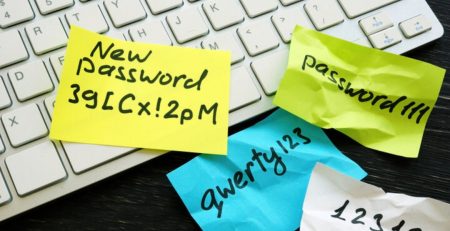Embarking on Your Coding Journey: Steps to Learn Entry-Level Coding
Are you looking to dive into the world of coding but feeling a bit overwhelmed by where to start? Learning to code can be an incredibly rewarding journey, opening up doors to a myriad of opportunities in various industries. Whether you aspire to become a software developer, web designer, or data analyst, or simply wish to enhance your problem-solving skills, the first steps into coding can pave the way for endless possibilities. Here’s a comprehensive guide to help you embark on your coding journey, from selecting the best beginner coding types to accessing valuable open-source code lessons.
- Are you looking to dive into the world of coding but feeling a bit overwhelmed by where to start? Learning to code can be an incredibly rewarding journey, opening up doors to a myriad of opportunities in various industries. Whether you aspire to become a software developer, web designer, or data analyst, or simply wish to enhance your problem-solving skills, the first steps into coding can pave the way for endless possibilities. Here’s a comprehensive guide to help you embark on your coding journey, from selecting the best beginner coding types to accessing valuable open-source code lessons.
- Choose the Right Beginner Coding Type
When you’re just starting, choose a programming language that aligns with your goals and interests. Here are some of the best beginner-friendly coding languages to consider:
Python: Known for its simplicity and readability, Python is an excellent language for beginners. It’s widely used in various fields such as web development, data science, artificial intelligence, and more.
JavaScript: If you’re interested in web development, JavaScript is a must-learn language. It’s the backbone of web development, enabling you to create interactive and dynamic web pages.
HTML & CSS: These languages are essential for building websites. HTML (Hypertext Markup Language) defines the structure of web pages, while CSS (Cascading Style Sheets) controls the layout and appearance.
Scratch: Perfect for beginners, Scratch is a visual programming language designed for kids but suitable for anyone new to coding. It’s a fun way to learn programming concepts through drag-and-drop blocks.
- Utilize Online Learning Platforms and Resources
There’s a wealth of online resources available to help you learn coding at your own pace. Here are some popular platforms and websites offering beginner-friendly coding tutorials and courses:
Codecademy: Known for its interactive learning approach, Codecademy offers courses on various programming languages, including Python, JavaScript, HTML, and CSS.
Coursera: Coursera partners with top universities and organizations to provide high-quality coding courses. You can find beginner-level courses in programming fundamentals, web development, and more.
freeCodeCamp: This nonprofit organization offers a comprehensive curriculum covering HTML, CSS, JavaScript, and more. It also provides hands-on coding challenges and projects to reinforce your learning.
Udemy: With a vast library of courses on programming and development, Udemy is a great platform to find beginner-friendly coding tutorials at affordable prices.
- Engage with the Coding Community
Joining coding communities and forums can be incredibly beneficial, especially when you’re starting. Here are some ways to engage with the coding community:
GitHub: As the largest code hosting platform, GitHub is a hub for developers to collaborate on projects, share code, and learn from each other. Explore open-source projects and contribute to them to enhance your skills.
Stack Overflow: This question-and-answer site is a valuable resource for programmers of all levels. If you encounter coding problems or have questions, chances are someone on Stack Overflow has the answers.
Meetup: Attend local coding meetups and events to connect with other aspiring developers and experienced professionals. Networking with like-minded individuals can provide valuable insights and support on your coding journey.
- Practice, Practice, Practice
Like any skill, learning to code requires practice and dedication. Here are some tips to hone your coding skills:
Build Projects: Apply what you’ve learned by working on personal projects. Whether it’s a simple web page, a small game, or a utility app, building projects will reinforce your understanding of coding concepts.
Code Regularly: Set aside dedicated time each day or week to code. Consistency is key to making progress and retaining information.
Seek Feedback: Don’t be afraid to share your code with others and ask for feedback. Constructive criticism can help you identify areas for improvement and learn best practices.
Learning to code is a journey that requires patience, perseverance, and a willingness to embrace challenges. By choosing the right beginner coding type, leveraging online resources, engaging with the coding community, and practicing regularly, you’ll be well on your way to mastering the fundamentals of programming. So, roll up your sleeves, dive in, and start coding your way to success!












